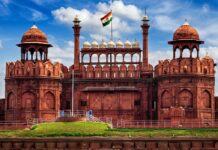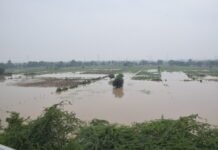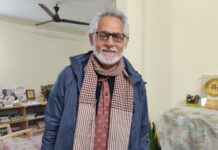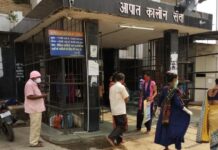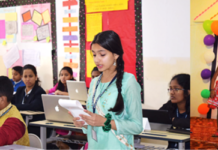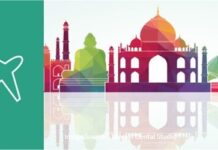[vc_row][vc_column][vc_column_text]
Billionaires, crorepatis, lakhpatis and khakpati (zero asset have-nots) are often the talk of the table, be it high table, low table or no table of squatters on bare ground. They mark different levels of life. Rich or poor, they have always co-existed, happily, grudgingly or unhappily, and are likely to be around for time to come. The bizarre truth of even Russia and Communist China having billionaires makes one sit up in wonder!
Yet there has always been the institution called the government, in all its variety, outside the world of billionaires and empty hands (khali haaths) commanding an overarching authority and providing a modicum of peace and orderly life. How the balance is held among the billionaires and the have-nots and the share-out of the total wealth determines the quality of life for most of the people in the world. That also weighs up the role of charity in a world of billionaires.
At the heart of the debate is the fact, give a fraction either way, that one percent of world’s population owns 10 percent of the world’s wealth. The glaring inequality no longer seems to shock the rest of the 90 percent the world’s populace. Nearer home India’s richest one percent held more than the total held by about 73 percent of the country ‘s population, according to Oxfam January 2018 data. India added 17 new billionaires to its tally in 2017. The figures keep changing as balance sheets are brought up-to-date and published.
The list of India’s dollar billionaires in 2020 is pretty impressive, some even by world standards. Mukesh Ambani of the Reliance Industries Ltd., the eighth richest man in the world, leads the Indian list with assets upwards of $88bn, followed by Gautam Adani group at $25.2bn, Shiv Nadar at $20.4bn, Radhakishen Damani at $15.4bn, Hinduja Brothers at $12.8bn, Cyrus Poonawalla, the ‘vaccine king of India’ at $11.5bn in October 2020 and soaring to new heights in 2021 on the back of vaccines in the pandemic era, followed by others, Azim Premji at $8.3bn, and others.
But the sizeable number of Indian billionaires, 101 at the last count in 2018, tells quite another story of a bunch of billionaires whose opulence dazzles the average Indian citizen. The quantum of assets of these billionaires keep varying according to the stock market fluctuations between 2018 and 2020 and could move up or down as more balance sheets are brought up-to-date and made public.
Poonawalla had climbed 57 places to become the 88th richest man in the world by May 2020 and is expected to climb still further in the current calendar year 2021.The Pune based company, though unlisted, had struck a deal quite early on with AstraZeneca to manufacture one billion doses of Coronavirus vaccine developed by Oxford University.
While the vaccine story is good news for India and the world, the other side of the coin is far from any comfort zone. The ongoing pandemic has made millions jobless all over the world and driven people into abject penury. The divide between the haves and have-nots has grown deeper with little sign of any significant change. If anything, it is getting worse in the aftermath of the Covid-19 pandemic.
That brings up the idea of some share-out between the haves and have-nots. Easier said than done. Mostly it is a case of camel passing through the needle’s eye. But truth is sometimes stranger than fiction. That’s where the charity volunteers emerge as white knights who sometimes dig into their pockets and chip in with part of their wealth to help the down-and-out poor of the world.
Bill and Melinda Gates, George Soros and Warren Buffets, to name some Western leading lights, have chipped in with good part of their wealth for charitable causes the world over. Not far behind are some of the Indian entrepreneurs like Azim Premji of Wipro group who have pledged good chunks of their wealth for charitable causes. Some seven years ago in 2013 Premji became the first Indian to join the Giving Pledge, a global movement initiated by Bill Gates and Warren Buffet, to encourage rich people to commit a part of their business winnings to philanthropic activities. Premji who has already pledged $21 billion for charitable causes tops the philanthropists list in Asia.
Premji follows a long line of industry giants like Jamsetji Tata, Dorabji Tata and the modern Tata Trust devoted to society and nation building. Following Premji’s example, others like Rohini and Nandan Nilekani have pledged 50 percent of their wealth, and Kiran Mazumdar Shaw of Biocon 75 percent of her wealth for public causes. All fine exemplars. But they are too few. An overwhelming proportion of families in India are deeply entrenched in the son-parivar or son-family promotion, dynasty driven parampara or tradition. Son-succession or dynasty obsession rules every family legacy or last WILL from generation to generation!
Ironically India has a long tradition of charity giving, individually and community wise. Free meals on Tuesdays and Saturdays by Hindu community leaders, Friday offerings by Muslim community members, and the daily langars at Gurdwaras or Sikh temples by the Sikh community are all great gestures.
But charity is not enough. What is needed is a charter of citizenship rights as has been put in practice by several countries in Europe and elsewhere. Welfare state with rights to unemployment and pension benefits, medical insurance in times of sickness – all as citizenship rights., not as an act of occasional charity by some well meaning, kind individuals or groups. Charity does not include a comprehensive safety net which only state or government can provide.
Welfare state provisions from cradle to grave may sound as a charter for free loaders and spineless individuals unable or unwilling to fend for themselves. But, as implemented in several countries over the last 70 to 100 years or more, the modern state provides a self-earned right by virtue of health insurance stamps or payments, taxes and other contributions made during one’s life as an adult worker. It also imparts an element of pride and self-assertion to the individual as a citizen. A citizen in one’s own right, by one’s own effort!
Britain’s history, especially since the end of the Second World War in 1945 under the Labour government led by Prime Minister Clement Attlee, is an example in the wider European history. The piecemeal legislations for workers rights since Liberal Prime Minister Lloyd George’s era, or even earlier, were strengthened and expanded under Attlee’s administration and further reinforced by successive Labour and Conservative governments.
With all good intentions of the occasional philanthropists, the billionaires cannot save the world. An organised institution called the state or the government today is far preferable to the rule of the often whimsical Rajas, Maharajas, Sultans, Kings and pontiffs of yesteryears. A broad welfare state needs to be in operation to manage the world on an equitable basis. The primacy of the government of the people, by the people, and for the people must remain the bedrock of our modern democratic era.
[/vc_column_text][/vc_column][/vc_row]
Disclaimer: We do undertake rigorous checks on content provided by contributors before publishing the same. If you come across some factual errors, kindly bring this into our notice and we shall review your objection and claim as per our policy and display correction credits and corrections on the article itself.
The opinion expressed in the article is of the writer. Writer is a freelance journalist/journalist based in Delhi

